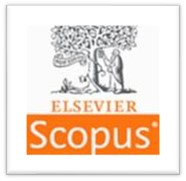Document Type
Article
Department
School of Nursing and Midwifery, Pakistan
Abstract
Access to a skilled professional midwife is the right of each woman. Research evidence shows that midwives prepared to international standards decrease rates of morbidity and mortality and promote health of both mothers and infants. At present, in Pakistan, there are several midwifery cadres, with different formal education levels, who provide maternal and child health services. There are currently three types of diploma programs each serving a different cadre. Until 2012, there was no opportunity to obtain higher education in midwifery in the country. This absence contributed to non-acceptance and invisibility of midwifery as a profession. As a result, midwives were not adequately prepared or permitted to provide full scope of care to women. Making higher education available in programs based on the International Confederation of Midwives’ Global Standards for Midwifery Education and its Essential Competencies for Midwifery Practice will enable midwives to provide improved health care services and increase opportunities for them to be advocates, leaders, and teachers who will continue to strengthen the profession. This paper proposes a framework for higher education in midwifery in Pakistan.
Recommended Citation
Jan, R, Lakhani, A, & Kaufman, K. Higher education in midwifery in Pakistan: A proposed framework. Journal of Asian Midwives. 2019;6(2):40–45.



